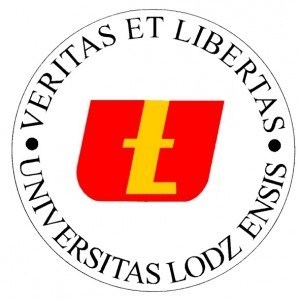Photos of university / #politechnika_wroclawska
Spatial Planning at Wrocław University of Science and Technology offers a comprehensive education and training program designed to prepare students for a dynamic career in managing and shaping the built environment. The program focuses on the innovative integration of urban, regional, and environmental considerations, equipping graduates with the skills necessary to develop sustainable, functional, and aesthetically appealing urban spaces. Students learn about the principles of land use planning, GIS technologies, environmental protection, transportation systems, infrastructure development, and policy formulation. The curriculum emphasizes practical skills through project-based learning, internships, and collaborations with local authorities and industry partners. Graduates of the program are prepared to work in various sectors, including municipal planning departments, private consultancy firms, environmental agencies, and development companies. The program promotes a multidisciplinary approach, combining insights from architecture, engineering, environmental science, and social sciences to ensure holistic urban development solutions. Through coursework, seminars, and field trips, students gain a deep understanding of spatial data analysis, urban design, legal and regulatory frameworks, and sustainable development strategies. The program maintains a strong emphasis on fostering innovation and critical thinking, enabling students to address complex spatial challenges of modern urban environments. Upon completing the program, graduates will be equipped to participate in the planning and management of urban projects, contribute to policy making, and implement sustainable practices that benefit society and the environment. The faculty members are experienced professionals and researchers dedicated to providing high-quality education, guiding students towards professional excellence and responsible urban stewardship.
The Spatial Planning programme at Wrocław University of Science and Technology is a comprehensive interdisciplinary course designed to prepare students for a diverse range of careers in the field of urban and regional development. The curriculum emphasizes the integration of scientific knowledge, practical skills, and innovative approaches to address the challenges of contemporary spatial management. Throughout the programme, students gain a solid understanding of spatial phenomena, territorial development processes, land use planning, environmental considerations, and the socio-economic factors influencing urban and rural areas. Courses cover essential topics such as geographic information systems (GIS), urban design, sustainable development, infrastructure planning, transportation systems, and policy analysis. The programme combines theoretical lectures with practical workshops, fostering the development of analytical and problem-solving abilities necessary for effective planning and decision-making. Students learn to assess spatial data, create detailed plans and proposals, and consider legal, environmental, and social implications of planning decisions. The curriculum is regularly updated to reflect current trends and innovations in planning practices, including smart and resilient city concepts, green infrastructure, and digital tools. Collaboration with local authorities, industry partners, and international organizations is a key component, providing students with valuable real-world experience and networking opportunities. Graduates of the programme are well-equipped to work in public administration, consulting firms, urban development agencies, environmental organizations, and private enterprises. They are prepared to contribute to sustainable urban and regional development, ensuring the efficient, functional, and equitable use of space for present and future generations. The programme fosters critical thinking, creativity, and a commitment to responsible planning, aligning with global efforts to create sustainable and livable environments.
Required: Bachelor Degree, minimum 210 ECTS. Master programme in planning is open to students with a non-planning background as long as they have completed 60% of all compulsory courses of an undergraduate planning degree. This means that programme is especially suitable for those who completed their first degree in: environmental studies, geography, transport studies, landscape architecture, architecture. Also background in public administration, economy, sociology or mathematics, physics and IT and computer studies is welcome.
Each application will be assessed individually on its merits.
English: minimum TOEFL 550 points/IELTS 6 points or equivalent as per the university’s requirementsOther requirements:
*condition to start the studies in a given programme is to qualify the number of candidates which equals to at least a full group of students (30 persons).
The financing of the Spatial Planning program at Wrocław University of Science and Technology is primarily based on a combination of public funding, student tuition fees, and potential governmental grants. As a public university in Poland, Wrocław University of Science and Technology benefits from substantial support from national and regional authorities aimed at promoting higher education and advanced research in urban development, environmental planning, and sustainable spatial management. Tuition fees for international students enrolled in the program are set in accordance with university rates and may vary depending on whether students are from within the European Union or outside the EU. Polish students generally benefit from subsidized education funded by the government, which minimizes their financial burden and promotes accessibility to higher education.
The university also actively participates in European Union funding programs such as Erasmus+ and Horizon Europe, which provide additional financial resources for student exchanges, research projects, and international collaborations related to spatial planning and urban development. These grants facilitate international mobility and support innovative teaching methods within the program, ensuring that students acquire cutting-edge knowledge aligned with European standards.
Furthermore, the university encourages students to acquire scholarships and financial aid opportunities provided by the Polish government, regional authorities, and private foundations. Scholarships are typically awarded based on academic achievement, socio-economic background, or specific research contributions. The university also promotes part-time employment opportunities for students, allowing them to supplement their income while studying without disrupting their academic progress.
The program’s infrastructural and educational resources, including dedicated laboratories, GIS laboratories, and modern classrooms, are maintained through university funds, research grants, and partnerships with local government and industry stakeholders. These collaborations often include co-financing arrangements that enhance the scope and quality of the educational offering.
Overall, the financial structure supporting the Spatial Planning program aims to ensure broad accessibility while maintaining high standards of education and research excellence. The combination of public funding, student fees, EU grants, and private scholarships creates a diversified funding landscape that sustains the program’s development and aligns with the university’s mission to educate competent and innovative spatial planning professionals.
The Spatial Planning program at Wrocław University of Science and Technology is a comprehensive course designed to equip students with the necessary skills and knowledge to effectively plan and manage the development of urban and rural spaces. The curriculum covers a broad range of topics, including urbanism, land use planning, environmental considerations, sustainable development, and the legal and administrative frameworks governing spatial planning processes. Students engage in theoretical studies complemented by practical exercises, including projects, workshops, and site visits, to foster a hands-on understanding of spatial planning challenges and solutions. The program aims to prepare graduates for careers in urban and regional planning offices, development agencies, consulting firms, and governmental institutions involved in spatial development and policy-making. Emphasis is placed on the use of modern tools and technologies such as Geographic Information Systems (GIS), remote sensing, and modeling software to analyze spatial data and support decision-making processes. The program encourages interdisciplinary approaches, integrating aspects of architecture, environmental science, law, and economics to develop holistic and sustainable planning strategies. Graduates will be capable of designing and implementing spatial development policies, managing urban growth, and promoting sustainable development practices. The program is often taught in Polish, with some courses available in English to attract international students. It collaborates with local government units and private sector partners to provide students with real-world experience and internship opportunities. The program aims to cultivate analytical thinking, creative problem-solving, and ethical considerations in planning initiatives, ensuring graduates can contribute effectively to shaping resilient and sustainable environments. The duration of the program typically spans three to four years, leading to a Bachelor's or Master’s degree, depending on the specialization and level of study. The faculty responsible for this program consists of experienced academics and practitioners in the field of spatial planning, committed to fostering innovative and responsible planning practices.







